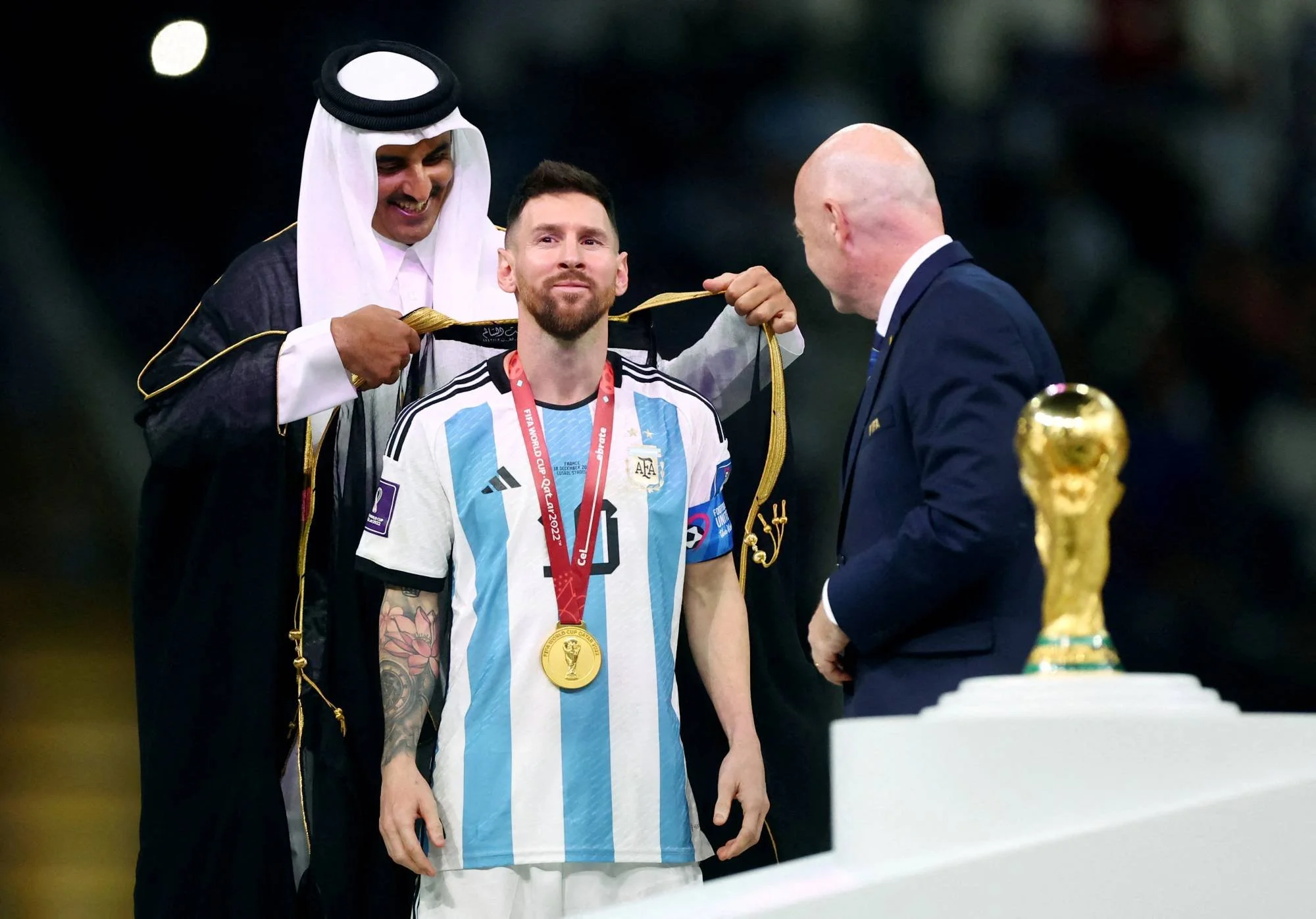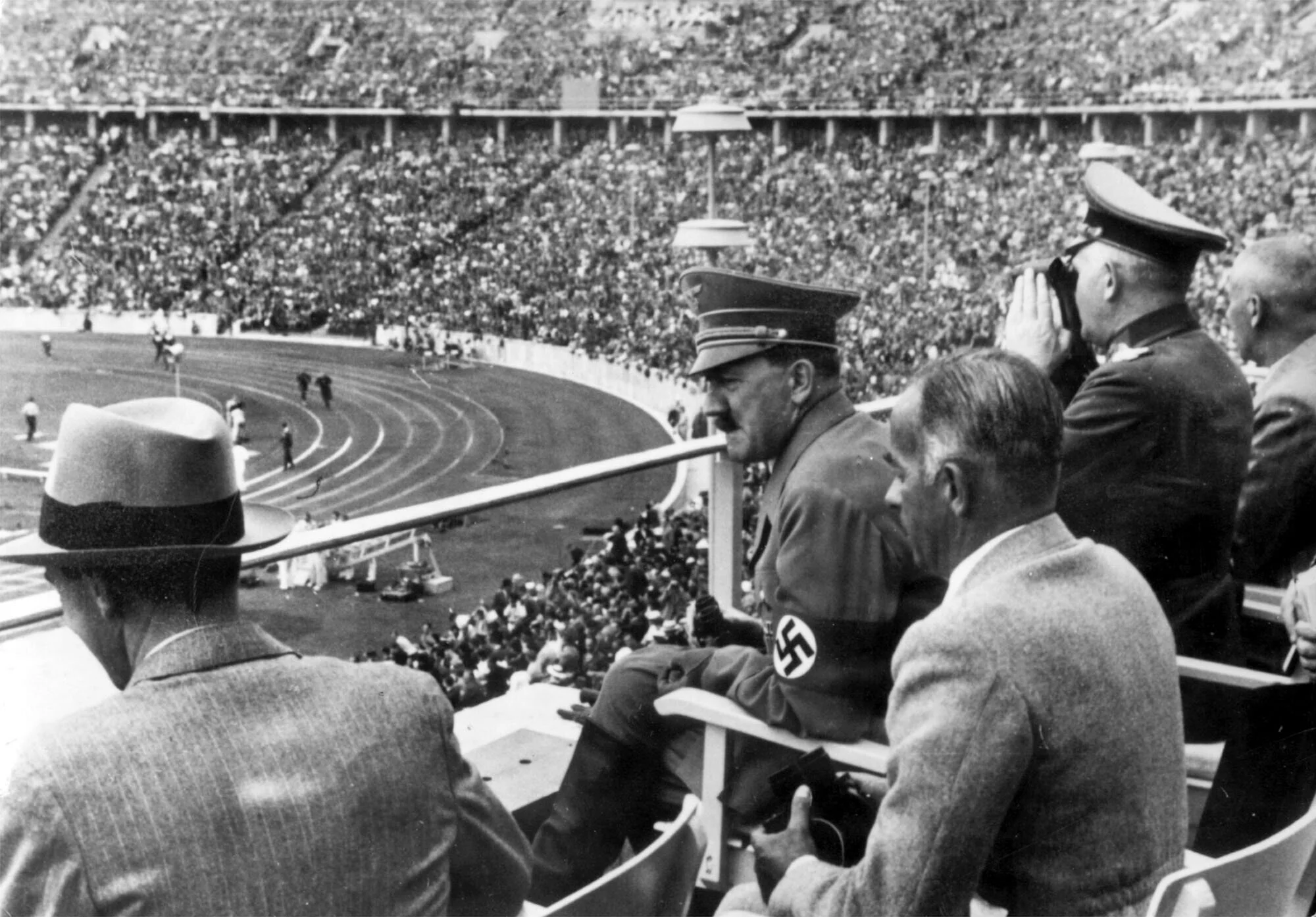Winning Without War: The Role of Sport in Advancing European Soft Power
August 11, 2025 - Written by Immy Hopkins
As Europe finds itself navigating an increasingly unpredictable geopolitical landscape, one shaped by renewed great power rivalry, competing global narratives, and the gradual erosion of the post-Cold War rules-based order, the importance of soft power has exponentially grown. In today’s world, where influence is often measured less by force and more by the ability to shape ideas and win hearts, tools such as cultural diplomacy, storytelling, and shared values have become essential. And in that mix, sport has quietly but powerfully emerged as one of Europe’s most effective instruments for positive global engagement.
Sport is uniquely positioned to promote goodwill and soft power. All varieties of sport cut across languages, borders, and ideologies, bringing people together in ways that few public spectacles can. Sport captures imaginations, sparks emotion, and builds connections among fans across the globe having enduring repercussions. For the UK, and the European Union (EU), an organisation built on cooperation, shared values and international dialogue, sport offers a natural channel to promote democracy, inclusion, and unity both within Europe and beyond its borders. Whether through high-profile events like the UEFA European Championships, or through grassroots programmes in local communities and international partnerships, sport has steadily become a key part of how the EU presents itself to the world: open, cooperative, cohesive, and committed to a rules-based global order.
However, despite sport holding vast potential, the EU’s and the UK’s use of it as a tool of positive foreign policy is severely underdeveloped. And this is becoming more of a concern as global competition for goodwill and partnerships intensifies. Authoritarian countries such as China and several Gulf states have dramatically expanded their influence by engaging in international sport. Gulf states have hosted major global events, as well buying up shares in some of Europe’s top football clubs, (for instance the 80% stake purchase of Newcastle United by The Public Investment Fund of Saudi Arabia in 2021, or wholesale purchase of Manchester City by the Abu Dhabi United Group in 2008 and Qatar Sports Investment acquiring 87.5% of the shares in PSG). These governments are actively trying to rebrand their international image and deflect attention away from human rights abuses at home. This practice is now widely referred to as ‘sportswashing.’ By employing these tactics of sportswashing, they not only undermine the value-based model that Europe has long championed, but also weaken the idea of sport as a meaningful tool for diplomacy and global norms.
Moreover, whilst Europe is home to some of the world’s most influential sporting institutions and events such as UEFA Champions League, the Six Nations, the Tour de France, and Ryder Cup, it has yet to consistently leverage these platforms to tell a strategic story about European identity and values. Sporting success and prestige offer an ideal platform to project messages of inclusion, gender equality, social cohesion, and the rule of law. Without deliberate efforts to shape the narrative, the EU risks missing a critical opportunity to translate its cultural capital into positive geopolitical influence.
The enduring power of sport lies not only in its global reach, but also in its ability to embody values and norms that resonate with societies worldwide. In this light, sport represents more than entertainment or national pride, rather it is a diplomatic language, a development tool, and a channel for peaceful influence. If harnessed more strategically, the positive influence of sport could serve as a cornerstone of a renewed European soft power agenda. Europe has long recognised this potential of export sport, but its efforts remain uneven.
Sport as a Vehicle for Influence
Sport creates opportunities for states to influence without coercion. It allows governments to associate themselves with openness, fairness, and inclusion all of which are values central to Europe’s own political identity. Hosting global events, partnering with international federations, or supporting sport-based development projects offer platforms to project these values, often to audiences that are otherwise hard to reach through formal diplomacy. This isn’t an entirely new idea, the US and China famously used what became known as "ping-pong diplomacy" in the early 1970s to ease tensions during the Cold War. The Olympics have also long served as a geopolitical stage, from Hitler’s propaganda-laden Berlin Games in 1936 to the Cold War boycotts of Moscow in 1980 and to the Los Angeles Games in 1984.
More recently, Russia used the 2018 Men’s World Cup to rehabilitate its image following the annexation of Crimea in 2014 and their military intervention in Syria in 2015. Similarly, Qatar’s highly controversial hosting of the 2022 Men’s World Cup was part of a broader effort to position itself as a forward-looking global player, despite ongoing criticism over its treatment of migrant workers and lack of political freedoms. These examples reflect a larger regional and global trend: countries are increasingly using sport to assert power, gain legitimacy, and shift public perception.
UEFA, despite not being an EU body, plays a crucial role in Europe’s global sporting image. Through its commitment to anti-racism campaigns such as ‘Kick it out’ and moves to sanction Russia after the 2022 full scale invasion of Ukraine. UEFA illustrated how sport can reflect political principles yet despite UEFA’s global visibility, the EU and the UK has not exploited this visibility in such a way to promote different ideals of fairness and equality beyond anti-racism initiatives, like those of gender equality and sexual orientation.
Countries such as Russia and Saudi Arabia have increased investments in international sport, often with clear political motives, “sportwashing” has entered the policy lexicon for a reason. These regimes are using the power of sport to shift public narratives, distract the global audience from domestic abuses, and build alliances through visibility and access. This can be seen with the creation of the LIV golf and the Saudi Pro Football League. If Europe wants to remain a credible player in this growing contest over global influence, it needs to implement serious changes in how it views sport. Sport can no longer be treated as an afterthought, it has to be seen as an important part of soft power and without a more strategic approach, Europe risks falling behind governments that are using sport in a more aggressive, calculated, and unconstrained way.
Case studies: The use of football to promote ideology
Several European countries have strategically utilised major sporting events, particularly football tournaments, as platforms to promote national values such as equality, inclusion, and diversity. This approach has been especially evident in contexts where these values were under threat or contested within domestic society. By leveraging the global visibility and unifying potential of sport, host governments sought to reshape narratives, project a cohesive national identity, and counteract negative perceptions, often aiming to influence both international spectators and their own citizenry.
For instance, the 1998 World Cup in France came off the back of heated debates over immigration and national identity. France used the tournament to promote a message of multicultural unity with the slogan ‘Black-Blanc-Beur’. This was in regard to addressing the multiculturalism of the the French squad which was comprising fromcomprised of white French as well as those of African and Caribbean descent. The subsequent winning of the tournament became a narrative of inclusion that helped reshape the conversation around who “belongs” in French society and showed how football could serve as a unifying force.
Following the symbolic success of France 1998, Germany’s hosting of the 2006 FIFA World Cup marked another pivotal moment in Europe’s use of sport as a tool for soft power and identity reshaping. Branded as the ‘Summer Fairy Tale’, the tournament was not just a celebration of football, but a transformative event in Germany’s post-war narrative. For the first time in decades, Germans felt comfortable publicly expressing national pride, waving flags and singing the national anthem without the shadow of historical guilt. Germany reintroduced itself to the world on new terms: not as a symbol of division and conflict, but as a modern European nation proud of its unity, diversity, and democratic values. The legacy of the 2006 tournament was not limited to sport. It helped reshape Germany’s self-perception, bolstered its cultural diplomacy, and demonstrated how major sporting events could be harnessed to nurture and project positive national identity. Within the broader European context, it further reinforced the idea that football can act as a platform for healing, transformation, and renewed national pride.
As host nation once again, Germany in 2024 was positioned to leverage the tournament not only to celebrate sport, but also to reaffirm core European beliefs. Beyond football itself, the tournament was framed as ‘United by Football’. The symbolic inclusion of Ukraine and participation of refugees served as a powerful statement of European solidarity against Russian aggression. It not only celebrates sport but also reinforces Europe’s external identity as a normative power rooted in human rights and liberal values.
Taken together, these tournaments show how the EU and the UK continue to embed sport within a broader geopolitical framework within the EU. Unlike the more transactional and image centric approaches in authoritarian nations, the European model is using sport to reinforce a vision of Europe as a community of values, who are committed to openness and equality. Through this lens sport is not only a spectacle but a carefully calibrated instrument of diplomacy.
Another example of the soft power that sport embodies is the Euro 2022 win for England. The tournament drew record-breaking crowds, international media attention and unprecedented levels of public engagement, conveying not only the growing prominence of women's sport but also the European values of gender equality and inclusivity. Crucially, the slogan ‘when more of us play, all of us win’ embodied the very essence of the European soft power narrative. It projected values of social cohesion resonating far beyond the pitch, unlike nationalist sporting narratives that are often found in authoritarian contexts. The visibility of the LGBTQ+ athletes iduring the Euro 2022 is an example of the embodiment of European values that have been emphasised so greatly in politics.
While the EU and the UK today often presents sport as a platform for inclusion and shared values, history shows that this same stage has also been used for more authoritarian ends. A striking early example is Italy’s hosting of the 1934 World Cup under Mussolini. This tournament, the first to be held in Europe, became a textbook case of how regimes can manipulate sport to reinforce nationalist narratives and consolidate power. Mussolini saw the World Cup not just as a sporting event, but as a golden opportunity to promote fascist ideology and showcase Italy’s supposed strength and unity under his rule. Crowds were mobilised, and the media amplified nationalist sentiment, framing sporting success as proof of Mussolini’s leadership. This use of sport as a stage for authoritarian image-building marked one of the earliest and most explicit examples of what is now recognised as “sportswashing” long before the term existed.
An historical example of this, outside of Europe, happened at the 1978 FIFA World Cup in Argentina hosted by the military junta that seized power in 1976, the tournament was used as a tool to legitimise the new regime both domestically and on the international stage, despite widespread human rights abuses including forced disappearances, torture, and censorship. While stadiums echoed with chants of national pride, and the team’s ultimate victory sparked euphoria across the country, just miles away political prisoners were being detained in secret facilities. The junta invested heavily in the event’s image, ensuring international media coverage portrayed Argentina as stable, modern, and united.
Comparing these narratives promoted by France 1998 and Germany 2006/2024 to the historical events of Italy’s World Cup 1934 and Argentina 1978 serves as a powerful reminder of how sport can be weaponised in very different ways. It illustrates the high stakes of the current global soft power contest, where sport can either reinforce open, democratic values or be co-opted by regimes seeking legitimacy and control.
Adolf Hitler at the Olympic Games in Berlin, Germany in August 1936.
Challenges
One of the core challenges for Europe to face in regards tomitigate using sport globally to reinforce Western values lies in a lack of unified vision. Sport policy within the EU is primarily a duty of member states, which has led to inconsistent messaging and limited cohesion in promoting unified EU external global engagement. This decentralisation and fracturing of decision-making often results in missed opportunities to capitalise on the EU’s collective sporting influence.
Moreover, the EU faces stiff competition from authoritarian regimes that operate with far fewer constraints. Authoritarian regimes are able to deploy vast resources swiftly and strategically, often unburdened by member states, public accountability, or democratic oversight. This allows them these regimes to act with greater agility and intensity, using sport as a highly visible tool of geopolitical influence. There is also a risk of value dilution. If sporting events become overly politicised or instrumentalised for image management , without consistent alignment with democratic principles, the EU’s credibility as a normative actor may suffer. This tension is compounded by the growing commercialisation and monetisation of international sport by international conglomerates, which can undermine efforts to prioritise values over profits. Without clear safeguards, guidelines and long-term strategies, sport diplomacy as a soft power tool may risk becoming reactive and symbolic, rather than proactive and structural.
Policy recommendations
To harness the full potential of sport as a soft power tool, Europe must take deliberate and strategic steps:
1. Develop a coherent EU sport diplomacy strategy
This strategy should begin by explicitly defining sport as a tool of external action, comparable to culture, education, and humanitarian aid with the clear goal of strengthening regional partnerships and countering malign global influence.
The strategy should also:
Identify priority regions and partner countries within the EU where sport diplomacy can support existing European goals.
Leverage partnerships with key sporting organisations, including UEFA and national Olympic committees to develop joint outreach projects and event-linked diplomacy efforts.
Develop monitoring and evaluation tools to track the effectiveness of sport-based interventions in public diplomacy, development cooperation, and value promotion.
Recognise and acknowledge the power of sport to influence cultural opinion.
2. Promote Policy Shifts in Education and Sport
One of the clearest demonstrations of sport influencing public policy within Europe came in the wake of the Lionesses’ victory at the UEFA Women’s Euro 2022. Following their widely circulated open letter to the government, the UK government pledged to guarantee equal access to sports for girls in schools, including a minimum of two hours of physical education per week. This marked a significant shift in national policy, prompted directly by female athlete advocacy and public support.
Such a development highlights sport’s ability to shape policy conversations around equity and representation. It serves as a compelling example of how elite sporting success, when combined with strategic civic pressure, can catalyse tangible legislative change. Additionally, embedding similar commitments into sport sport-funding frameworks, could incentivise more inclusive practices across member states, aligning sport policy with broader gender and education agendas. In doing so would also enable the EU and the UK to export a governance model where sporting success can directly feed back into social progress, further reinforcing the value-based orientation of its soft power.
3. Enhanced Global Reputation
The Women’s Euros revealed the potential of sport as a form of reputational diplomacy, especially when aligned with issues such as gender equality and youth empowerment. As such, it provides a template for how both the UK and the EU can leverage elite-level sporting success as part of their external communication and diplomatic strategy. By systematically amplifying such moments through their embassies, development partnerships, and media diplomacy, European actors can extend the reach and lifespan of these narratives well beyond the tournament itself.
Moreover, collaborations with international NGOs and sporting bodies in the Global South can help sustain the positive momentum generated by such events. This would not only enhance Europe's global image, but also provide concrete benefits in bilateral relations, particularly in areas of soft influence such as development cooperation, education, and cultural exchange.
Conclusion
As global politics becomes increasingly shaped by influence rather than force, sport has emerged as a subtle yet powerful instrument of international engagement. From the symbolic unity of France 1998, to the strategic messaging of Euro 2024, sport has consistently offered a platform through which the EU and UK can articulate their values of racial and gender equality, LGBT+ inclusiveness,, engage international audiences, and promote a cohesive external identity. The EU's legacy of cultural diplomacy, combined with the emotive reach of sporting events, positions it uniquely to leverage sport as a soft power asset.
To remain credible and competitive in this arena, the EU and the UK must evolve its approach. That means crafting a coherent sport diplomacy strategy, improving coordination across institutions and member states, and embedding sport more deeply within development, education, and external action frameworks. These steps are not just symbolic but essential if Europe hopes to translate its rich sporting heritage into lasting positive geopolitical influence.
Written by Immy Hopkins
Analyst on the European Research Desk



